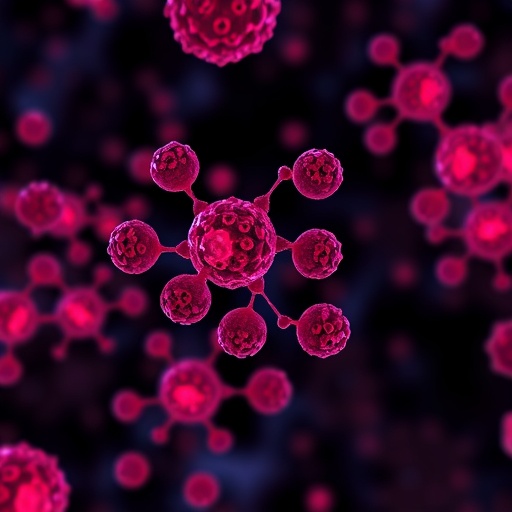In a striking development that has sent ripples through the oncology research community, a recent study investigating the cytotoxic effects of auraptene on acute myeloid leukemia (AML) cell lines has been officially retracted. Auraptene, a natural coumarin derivative found in citrus fruits, has been under intense scrutiny owing to its purported anticancer properties, especially its role in inducing apoptosis and inhibiting proliferation in various malignant cells. This retraction raises significant questions regarding the reproducibility and validity of findings that once promised a novel therapeutic avenue for one of the most aggressive blood cancers known to medicine.
.adsslot_tSXWi95BaJ{ width:728px !important; height:90px !important; }
@media (max-width:1199px) { .adsslot_tSXWi95BaJ{ width:468px !important; height:60px !important; } }
@media (max-width:767px) { .adsslot_tSXWi95BaJ{ width:320px !important; height:50px !important; } }
ADVERTISEMENT
However, the retraction note issued by the journal Medical Oncology illuminates critical flaws in the experimental methodology and data integrity that have undermined the study’s credibility. Although specific details on the nature of the issues remain sparse, retractions commonly stem from factors such as inadvertent errors in data interpretation, irreproducibility of results upon independent verification, or, more detrimentally, possible misconduct. The scholarly community depends heavily on transparent and rigorous scientific processes, and any erosion of such standards fundamentally weakens collective efforts to combat diseases like AML.
The complexity of AML itself further complicates research into candidate therapeutics like auraptene. AML encompasses a heterogeneous array of clonal disorders arising from multipotent hematopoietic progenitors, often displaying diverse genetic mutations that influence disease evolution and treatment response. Consequently, agents targeting broad pathways must exhibit consistent effects across various subtypes, a demand that few compounds satisfy. Aurora, although biochemically intriguing, might have faltered under these multifaceted biological pressures detailed in the retracted article.
Moreover, the exact molecular targets purported to be modulated by auraptene in leukemic cells remain contentious. Previous studies have proposed mechanisms involving NF-κB inhibition, downregulation of anti-apoptotic genes such as Bcl-2, and interference with cell cycle checkpoints. Yet, discrepancies in experimental design, such as inconsistencies in concentration ranges employed, cell line authenticity, and detection methodologies for apoptosis markers, could have contributed to the unreliability of results that led to withdrawal of the publication.
This situation underscores the pressing need for enhanced reproducibility in preclinical cancer research. The field must adopt rigorous standards encompassing validated cell models, standardized protocols, and comprehensive peer review processes. Such measures would prevent premature enthusiasm for therapeutic claims unsupported by reproducible data, safeguarding patients and clinicians from misleading information that could derail treatment strategies or clinical trial designs.
In addition to research methodology concerns, this retraction spotlights the ethical dimensions embedded in the biomedical publication landscape. Retractions serve as corrective mechanisms that preserve the scientific record’s integrity but may also cast shadows on researchers’ reputations and funding prospects. Transparency about the reasons behind retractions, including open dialogue about challenges encountered during research, is crucial for constructive learning and evolution within the field.
The auraptene case also brings to light broader discussions about natural products in cancer therapy development. While natural compounds provide a diverse pool of bioactive molecules, their complex pharmacodynamics and pharmacokinetics necessitate careful characterization. The allure of “natural” agents sometimes overshadows the arduous process required to validate efficacy and safety through rigorous testing pipelines that artificial or synthetic drugs undergo.
From a clinical viewpoint, acute myeloid leukemia presents persistent therapeutic challenges characterized by rapid proliferation of myeloblasts, disruption of normal hematopoiesis, and often poor response to conventional treatments. Any candidate compound demonstrating potential cytotoxicity through selective targeting of AML cells invites high hopes, but such findings must withstand rigorous scrutiny, replication, and ultimately robust clinical trials to establish place in therapy.
In conclusion, the retraction of the auraptene-induced cytotoxic effects article serves as a sobering reminder that scientific progress is incremental, fragile, and reliant on meticulous validation. While the pursuit of new therapies for AML remains urgent and necessary, this episode emphasizes the critical role of scientific rigor, transparency, and reproducibility in the journey from molecular discovery to clinical application. The oncology community must learn from such setbacks and continue to propel research with integrity, ensuring that breakthroughs truly withstand the test of time and verification.
Subject of Research: Auraptene’s cytotoxic effects in acute myeloid leukemia cell lines
Article Title: Retraction Note: Auraptene-induced cytotoxic effects in acute myeloid leukemia cell lines
Article References:
Ghorbani, M., Soukhtanloo, M., Farrokhi, A.S. et al. Retraction Note: Auraptene-induced cytotoxic effects in acute myeloid leukemia cell lines. Med Oncol 42, 429 (2025). https://doi.org/10.1007/s12032-025-02990-0
Image Credits: AI Generated
Tags: acute myeloid leukemia researchAML treatment challengesanticancer properties of aurapteneapoptosis induction in cancer cellsauraptene cytotoxic effectsbioactive compounds in oncologycancer cell cycle regulationnatural coumarin derivativesoncology study retractionoxidative stress in leukemiareproducibility in scientific researchtherapeutic potential of auraptene





